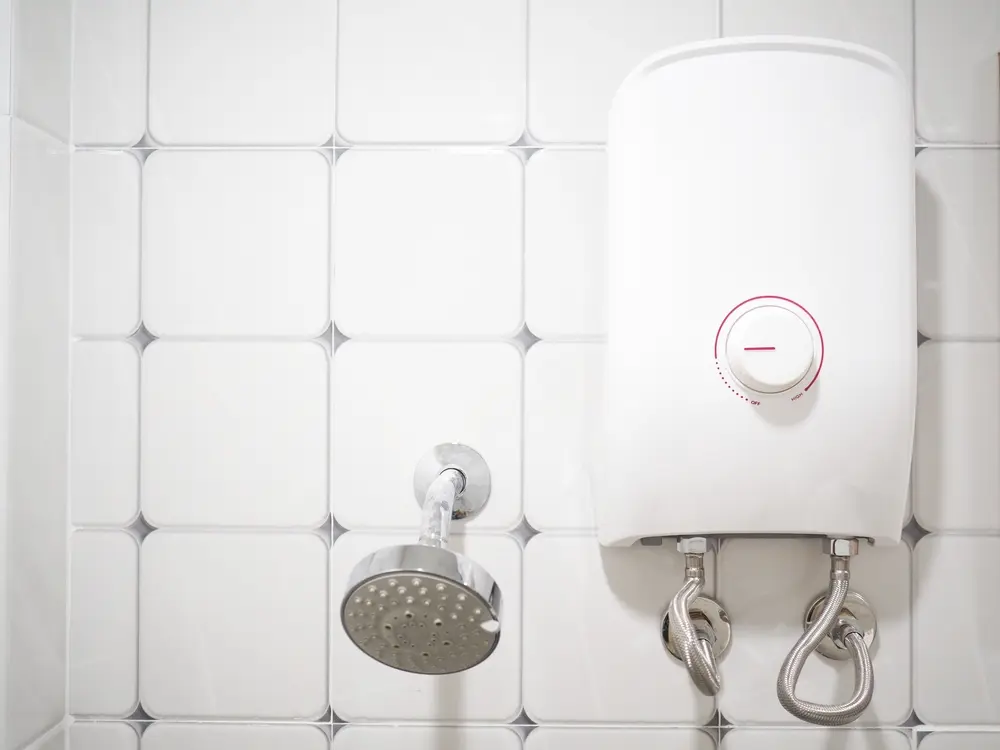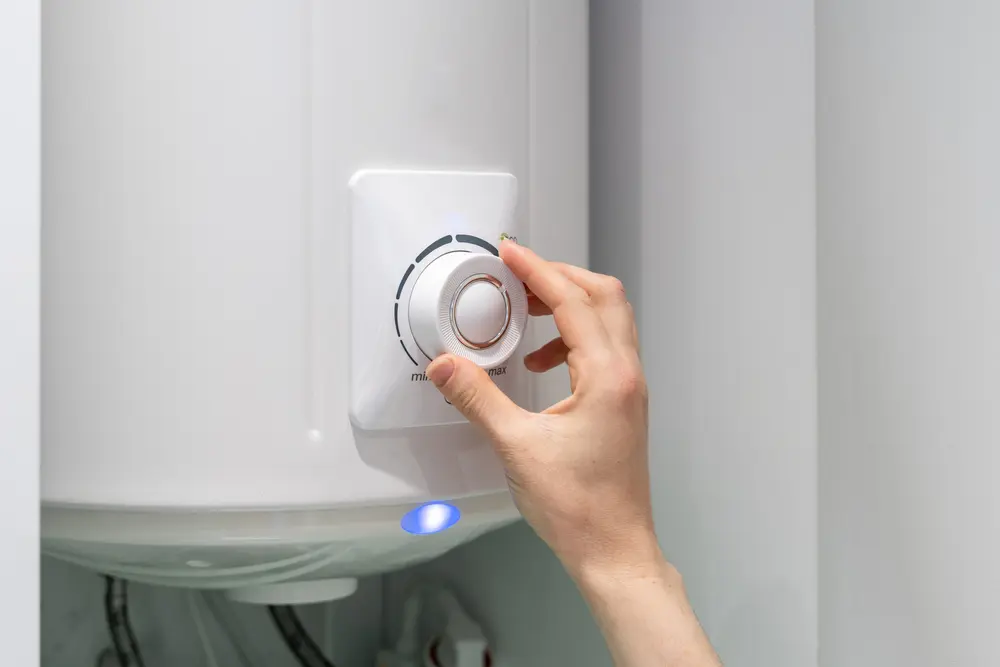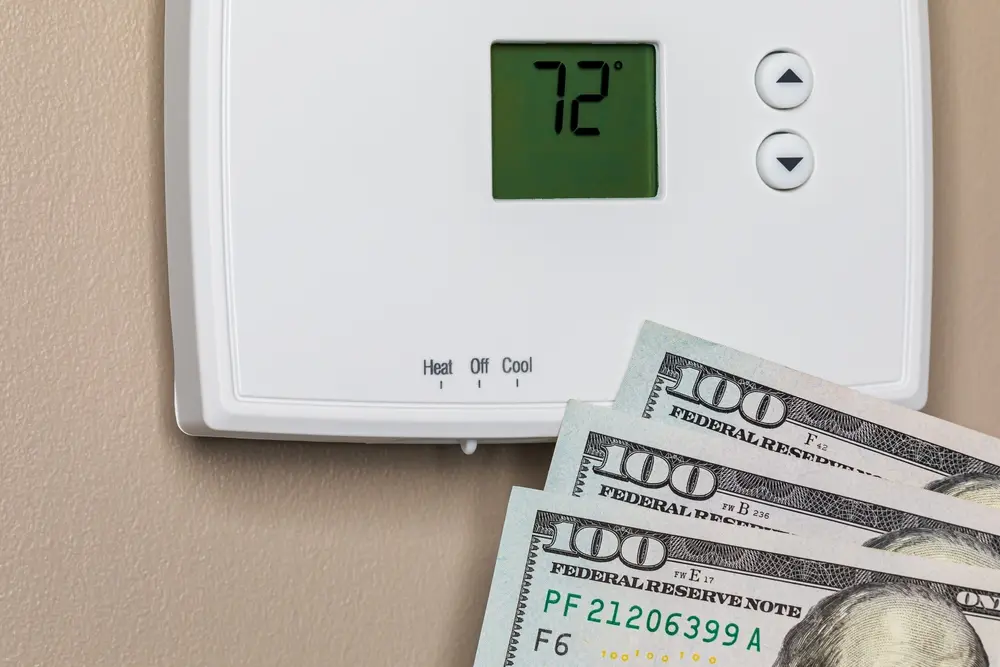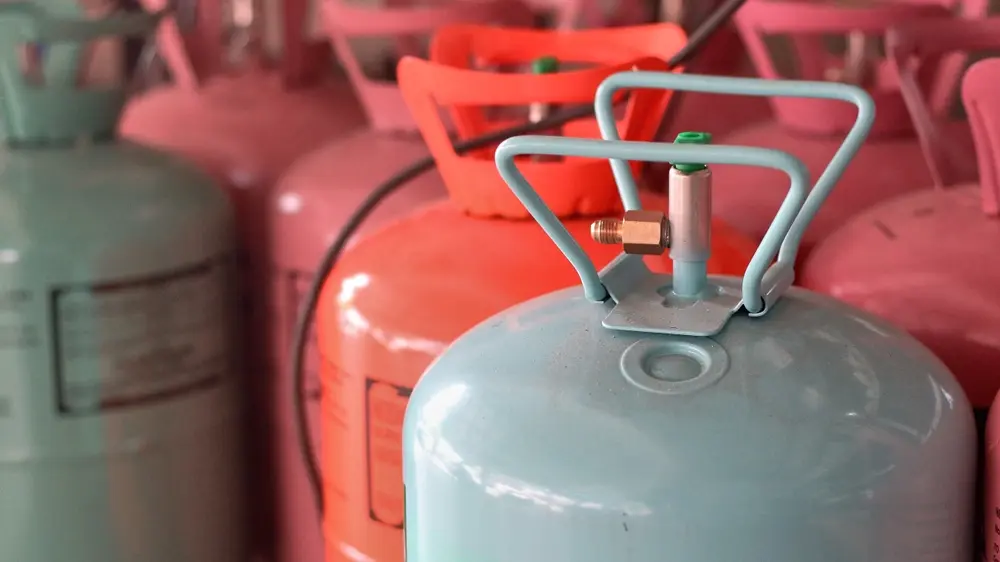
Blog
Tankless Water Heater vs. Tank: Which is Right for Your Home?

Water heaters act as the main delivery method for your home’s hot water. There are two types of water heaters homeowners can choose from: a traditional tank or tankless. Each of these options has benefits, but which is right for your home? Chapman Heating, Air Conditioning & Plumbing is here to help break down the differences and help you choose a system that matches your budget and water heating needs.
Differences Between Tanked & Tankless Water Heaters
The debate of a tankless water heater versus a tank hinges on their differences. The main difference between the tank and tankless models is how they work.
How Does a Tanked Water Heater Work?
Tanked water heaters have long been the traditional method for homeowners. This style of water heater works by following this process:
- The unit’s tank is filled with cold water
- Cold water is heated by a gas burner beneath the tank or by electric components within
- Once the hot water tap is turned on, hot water is delivered for usage
- Cold water is added to the tank for the next set of usage
How Does a Tankless Water Heater Work?
Tankless water heaters have no storage unit, they only provide heat water when the hot water tap is turned on. Water is heated by electricity and then flows through the pipes to the faucet or showerhead at the preset temperature.
Benefits & Drawbacks of Traditional Water Heaters
Benefits
Benefits of traditional water heaters include:
- Cheaper upfront cost
- They can withstand increased hot water demands around the house such as multiple showers at once
- Large amounts of water are heated at one time
- Operation and repairs are simple in comparison to tankless water heaters
Drawbacks
The drawbacks of a traditional water heater that you should be aware of include:
- Once a large amount of hot water is gone, there’s a buffer time for the heated water to refill
- They only last between 10 and 15 years
- Require more space
- Leaks can develop over time, potentially leading to damages
- Energy bills are higher with this style
Benefits & Drawbacks of Tankless Water Heaters
Benefits
Benefits of a tankless water heater include:
- Longer lifespan
- Requires less space
- Better efficiency as they only heat water when you need it
- Less worry that the unit will leak
- Non-condensing tankless models can be less expensive
Drawbacks
Drawbacks of a tankless water heater worth noting include:
- Higher upfront costs
- Buffer time for hot water access
- Not always as readily available
- Major home changes like gas line installation may be required
- Condensing units can have corrosion issues
Gas vs. Electric Water Heaters
Each style of water heater has options to use gas or electricity as their source of energy. But like the different styles, the method of sourcing energy also has its pros and cons. In terms of installation costs, electric tankless water heaters can be cheaper to install because it doesn’t have a gas vent. On the other hand, Tankless gas water heaters require ventilation and access to a gas line. This added layer of complexity typically involves higher costs upfront.
Other notes to consider are that electric tank water heaters cost more to operate and have longer recovery times. Gas tank water heaters do heat water quicker but they have shorter lifespans than electric.
How to Choose the Best Option for Your Needs
Now that the benefits and drawbacks of each style of water heater have been laid out, how do you choose the best option for your needs? To choose the best on-demand water heater, you need to consider your home’s current plumbing system. The size of your household and hot water needs play a big role in this decision. Tankless water heaters are the better option for smaller households that don’t require tons of hot water.
Your home’s current system also plays a big role; transitioning from one to the other may not be worth it due to complex installation. Other factors such as the size and shape of your home’s pipes may be more suitable for one over the other. Weighing the initial costs, maintenance, and energy efficiency of each type of water heater will help you make an informed decision.
Get Help From the Professionals at Chapman in Indianapolis
At the end of the day, there’s no clear-cut answer for every home when it comes to choosing a style of water heater. It all depends on the needs of your home and household. Whether you’re looking for water heater repairs, installation, or maintenance, get help from the professionals at Chapman. We’re happy to discuss water heater options and services for your Indianapolis, IN home so you can enjoy hot water from the best on-demand water heater. Contact us today for all of your water heater needs.










